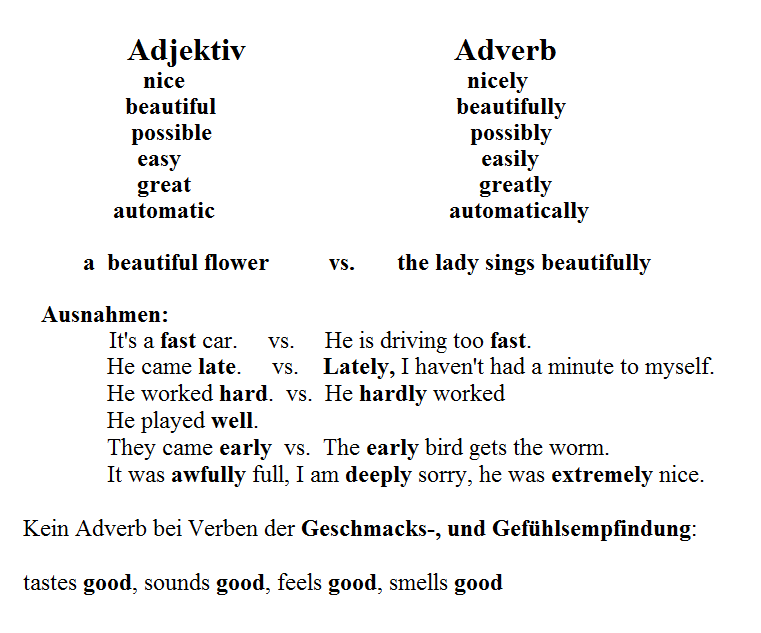adjective /adverb - different usage explanations
An adjective describes a noun. An adverb, however, describes a verb. As simple as that.
If an adverb is regular, you simply add -ly.
I will take a quick look. → I will look quickly.
Of course, there are some exceptions:
| consonant + -y easy | consonant + -y easily |
| ending le + ly possible | ly possibly |
| ending ic + ly automatic | ically automatically |
other exceptions:
good → well,
fast, early, late und hard remain as is
| good a good man | well he played well |
| hard a hard work | hard he worked hard |
| late a late night | late he came late |
| early the early bird | early he came early |
| fast a fast car | fast he drives fast |
Beware:
The adverbs lately and hardly exist. However, their meaning is entirely different form the meaning of the adjectives late and hard
lately means: recently, currently; hardly means rarely.
Especially in the case of hardly there could be confusion:
He worked hard. (Er hat hart gearbeitet) vs. He hardly worked. (Er hat kaum gearbeitet)
| hardly = rarely | he hardly worked |
| lately = recently | he has been ill lately |
Verbs of sentiment and perception
Verbs of sentiment and perception don't use its adverbial form.
sound good, feel good, smell good, taste good, look good
Adverb describing an adjective
If an adjective relates to an adjectives or adverb and describes it further, it is also put into its adverbial form:
extremely nice, awfully slow, unexpectedly easy, painfully slowly etc.

